Laptop for Full Stack Developer
🔗 All OccupationsIn today’s fast-evolving tech landscape, full stack developers play a pivotal role in bridging the gap between front-end and back-end development. As such, they require a laptop that’s robust, versatile, and equipped to handle a variety of development tasks. Here, our advanced algorithm, fine-tuned to understand the complex needs of the modern developer, provides a meticulously curated list of the best laptops for full stack developers.
Do you have a set budget? Filter by value:Smart Similar FiltersTop Laptops for Full Stack Developers
- AMD Ryzen 7 7735HS ℹ
- 16GB RAM
- GeForce RTX 4060 8GB ℹ
- 512GB SSD
- 15.6" 144hz (1920 x 1080) IPS
- Windows 11
 Games
Games  Video Editor
Video Editor Architeture
Architeture Design
Design Programming
Programming
Cost-benefit: 35.867836035081/10
- Intel Core i5-12450H ℹ
- 8GB RAM
- GeForce RTX 4050 6GB ℹ
- 512GB SSD
- 15.6" 144hz (1920x1080) IPS
- Windows 11
 Games
Games  Video Editor
Video Editor Architeture
Architeture Design
Design Programming
Programming
Cost-benefit: 10/10
- Intel Core i5-1240P ℹ
- 8GB RAM
- GeForce RTX 3050 Ti 4GB ℹ
- 512GB SSD
- 15.6" 60Hz (1920x1080) IPS
- Windows 11
 Games
Games  Video Editor
Video Editor Architeture
Architeture Design
Design Programming
Programming
Cost-benefit: 9.7/10
- Core i5-11400H ℹ
- 8GB RAM
- GeForce RTX 3050 4GB ℹ
- 512GB SSD
- 15.6" 144 Hz (1920 x 1080) IPS
- Windows 11
 Games
Games  Video Editor
Video Editor Architeture
Architeture Design
Design Programming
Programming
Cost-benefit: 9.5/10
- AMD Ryzen 5 5600U ℹ
- 8GB RAM
- GeForce RTX 3050 4GB ℹ
- 512GB SSD
- 14" 60hz (1920x1080) IPS
- Windows 11
 Games
Games  Video Editor
Video Editor Architeture
Architeture Design
Design Programming
Programming
Cost-benefit: 8.4/10
- Intel Core i5-11300H ℹ
- 8GB RAM
- GeForce RTX 3050 4GB ℹ
- 512GB SSD
- 15.6" 120hz (1920x1080) IPS
- Windows 11
 Games
Games  Video Editor
Video Editor Architeture
Architeture Design
Design Programming
Programming
Cost-benefit: 9.5/10
- AMD Ryzen 5 5600H ℹ
- 16GB RAM
- Radeon Ryzen 5 5600H ℹ
- 512GB SSD
- 16" 60hz ( 1920x1200) IPS
- Windows 11
 Games
Games  Video Editor
Video Editor Architeture
Architeture Design
Design Programming
Programming
Cost-benefit: 9.3/10
- Intel Core i5-1235U ℹ
- 16GB RAM
- Intel Iris Xe Graphics ℹ
- 512GB SSD
- 15.6" 60hz (1920x1080) IPS
- Windows 11
 Games
Games  Video Editor
Video Editor Architeture
Architeture Design
Design Programming
Programming
Cost-benefit: 9/10
- Intel Core i7-1355U ℹ
- 8GB RAM
- Intel Iris Xe ℹ
- 512GB SSD
- 14" 60 (1920 x 1200 Touch) IPS
- Windows 11
 Games
Games  Video Editor
Video Editor Architeture
Architeture Design
Design Programming
Programming
Cost-benefit: 7.8/10
- Intel Core i5-1155G7 ℹ
- 16GB RAM
- Intel Iris Xe Graphics ℹ
- 512GB SSD
- 15.6" 60hz (1920 x 1080 ) IPS
- Windows 11
 Games
Games  Video Editor
Video Editor Architeture
Architeture Design
Design Programming
Programming
Cost-benefit: 8.7/10
- Intel Core i5-1135G7 ℹ
- 16GB RAM
- Intel Iris Xe ℹ
- 512GB SSD
- 15.6" 60 Hz (1920 x 1080) IPS
- Windows 11
 Games
Games  Video Editor
Video Editor Architeture
Architeture Design
Design Programming
Programming
Cost-benefit: 8.4/10
- AMD Ryzen 3 5425U ℹ
- 32GB RAM
- Radeon Ryzen 3 5425U ℹ
- 512GB SSD
- 15.6" 60hz (1920 x 1080) IPS
- Windows 11
 Games
Games  Video Editor
Video Editor Architeture
Architeture Design
Design Programming
Programming
Cost-benefit: 7.8/10
 Full Stack Developer
Full Stack Developer

The Importance of Laptop Specifications for Development:
Performance:
- Processor: The CPU plays a vital role in code compilation, running local servers, and virtualization. A high-speed, multi-core processor ensures smooth and swift operations.
- RAM: Full stack development often involves having multiple tools and tabs open simultaneously. A minimum of 16GB RAM is recommended for a seamless experience, but 32GB can offer even more flexibility.
Storage:
- SSD vs. HDD: An SSD, particularly NVMe, is essential for faster boot times, quick application launches, and efficient read/write operations. For large projects, having a 1TB SSD or higher becomes crucial.
Display Considerations:
Resolution and Size: A clear, high-resolution screen (preferably 4K) aids in spotting minute details in the code and design, while a larger screen can facilitate multi-window coding.
Colour Accuracy: Especially for those who dabble in front-end development and design, color accuracy can be important for ensuring a consistent and appealing user interface.
Operating System Preferences:
Windows, macOS, or Linux: While many developers have OS preferences, versatility is key. Some prefer macOS for its UNIX-based environment, while others lean towards Linux for its customizability or Windows for its broad application compatibility.
Connectivity & Ports:
USB & Thunderbolt: Having multiple USB ports, especially USB-C and Thunderbolt 3/4, can be beneficial for connecting to external devices, like secondary monitors or specialized hardware.
Wi-Fi & Ethernet: A stable and fast internet connection, whether through Wi-Fi 6 or a dedicated Ethernet port, is essential, especially when pushing code or accessing remote servers.
Keyboard and Touchpad Quality:
Comfortable Typing Experience
Full stack developers spend a significant amount of time typing. A comfortable, responsive keyboard can make this process less tedious.
Touchpad Precision
A high-quality touchpad ensures precise cursor movements, which can be essential when navigating through intricate code or design frameworks.
Specialized Software & Tools:
Full stack developers often work with a diverse range of software, including:
- IDEs: Visual Studio Code, Atom, IntelliJ IDEA, and more.
- Version Control: Tools like Git and platforms like GitHub or Bitbucket.
- Virtualization & Containers: Docker, VirtualBox, and Kubernetes for containerization and virtual environments.
- Databases: MySQL, MongoDB, PostgreSQL, and others.
- Frameworks & Libraries: Node.js, React, Angular, Vue.js, Django, and more.
Understanding laptop compatibility and performance with these tools is crucial.
Battery Life and Portability:
Developers on the go, especially those who like to code in cafes or co-working spaces, need a laptop with a substantial battery life. A minimum of 8 hours is desirable, but more can provide greater peace of mind.
The Broader Ecosystem & Support:
It’s not just about the laptop’s specs. A supportive community, easy access to spare parts, and good customer service can be crucial, especially when facing hardware or software challenges.
Conclusion:
The world of full stack development is vast, intricate, and continuously evolving. Thus, the laptop of choice for a full stack developer should mirror these traits. With this comprehensive guide, we’ve aimed to provide a clear and detailed understanding of what to look for in a laptop. Trust our specialized algorithm to navigate the intricate world of tech specifications, ensuring you get a machine that’s not just adequate, but perfectly tailored for full stack development.








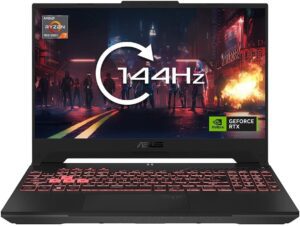
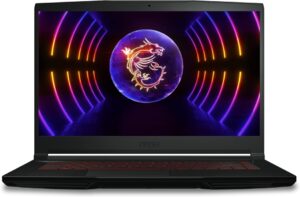
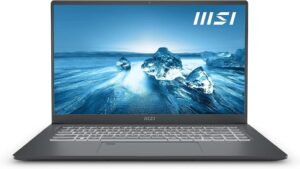
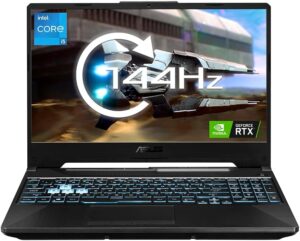

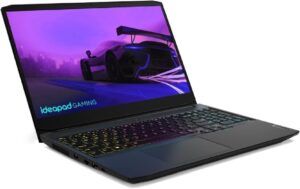
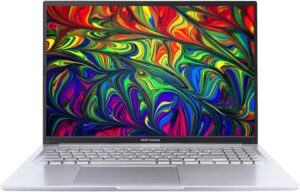
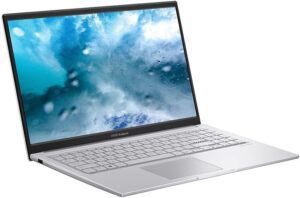
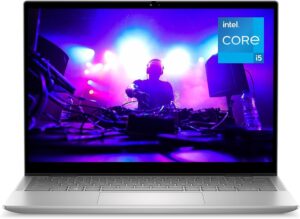

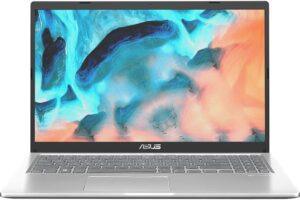
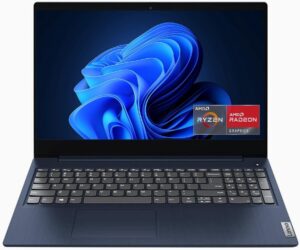
 Full Stack Developer
Full Stack Developer